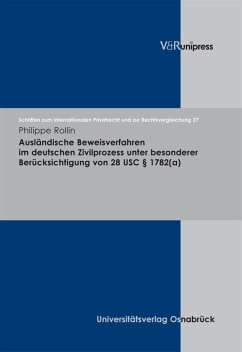
Die Vereinbarkeit der deutschen Betrugsstrafbarkeit (§ 263 StGB) mit unionsrechtlichen Grundsätzen und Regelungen zum Schutz der Verbraucher vor Irreführungen (eBook, PDF)

PAYBACK Punkte
0 °P sammeln!
Das Leitbild eines informierten, aufmerksamen und verständigen Durchschnittsverbrauchers bestimmt im Unionsrecht in weiten Teilen die Reichweite des Verbraucherschutzes. Aufgrund des Anwendungsvorrangs des Unionsrechts wird nun wiederholt gefordert, dass auch durch den deutschen Betrugstatbestand nur noch der Durchschnittsverbraucher geschützt sein dürfe. Die Autorin untersucht vor diesem Hintergrund, welche Rolle der Verbraucherschutz im Unionsrecht grundsätzlich spielt und wie er inhaltlich ausgestaltet ist. Eine vertiefte Auseinandersetzung mit der deutschen Betrugsdogmatik ermöglicht ...
Das Leitbild eines informierten, aufmerksamen und verständigen Durchschnittsverbrauchers bestimmt im Unionsrecht in weiten Teilen die Reichweite des Verbraucherschutzes. Aufgrund des Anwendungsvorrangs des Unionsrechts wird nun wiederholt gefordert, dass auch durch den deutschen Betrugstatbestand nur noch der Durchschnittsverbraucher geschützt sein dürfe. Die Autorin untersucht vor diesem Hintergrund, welche Rolle der Verbraucherschutz im Unionsrecht grundsätzlich spielt und wie er inhaltlich ausgestaltet ist. Eine vertiefte Auseinandersetzung mit der deutschen Betrugsdogmatik ermöglicht schließlich eine vergleichende Betrachtung der unterschiedlichen Regelungsmaterien und das Auffinden von Konfliktlagen zwischen dem Unionsrecht und der deutschen Betrugsstrafbarkeit. Die Untersuchung zeigt, dass Kollisionen sehr unwahrscheinlich sind und sich zudem äußerst schonend auflösen lassen. In Union legislation the extent of consumer protection is to a large degree determined by the notion that the average consumer is informed, vigilant and reasonable. Due to the primacy of the application of Union law, it is repeatedly demanded that German legislation should also only protect the 'average' consumer. Against this background the author examines the fundamental role of consumer protection in Union legislation and looks at the content of the law. Finally, an in-depth discussion of the German doctrine of fraud allows a comparative assessment of the different regulatory provisions and the identification of conflicts between Union law and criminal liability for fraud as defined by German law. The study shows that such clashes are highly improbable and, moreover, with extreme care can be resolved.
Dieser Download kann aus rechtlichen Gründen nur mit Rechnungsadresse in A, B, BG, CY, CZ, D, DK, EW, E, FIN, F, GR, H, IRL, I, LT, L, LR, M, NL, PL, P, R, S, SLO, SK ausgeliefert werden.













